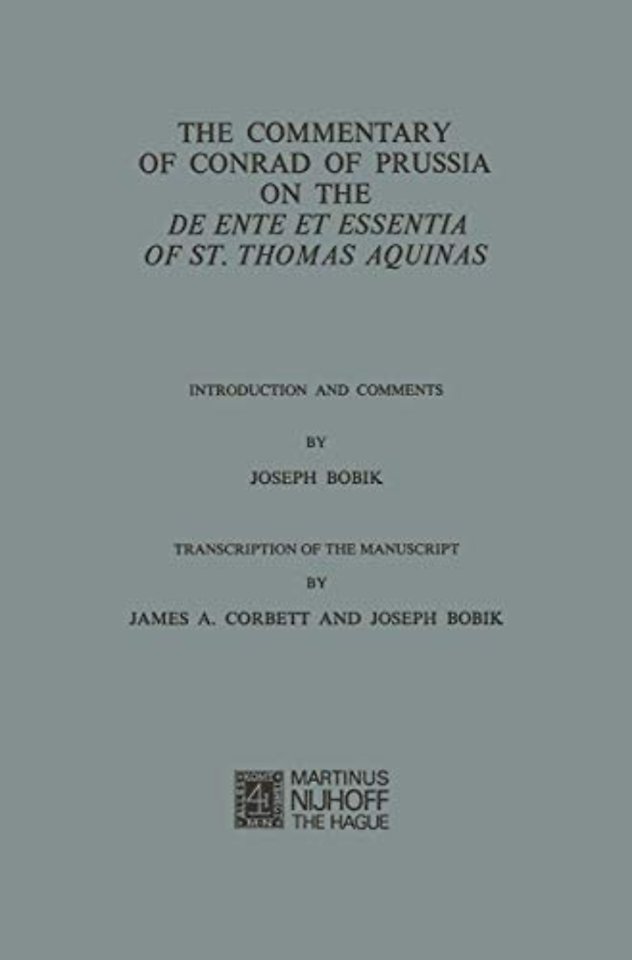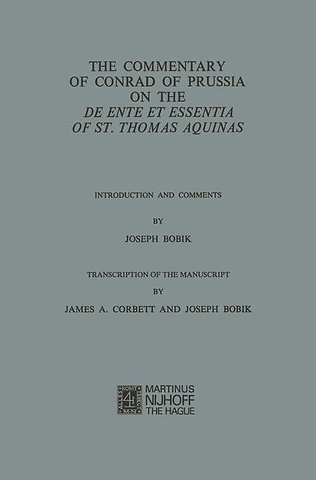The Commentary of Conrad of Prussia on the De Ente et Essentia of St. Thomas Aquinas
Introduction and Comments
Paperback Engels 1974 1974e druk 9789401503556Samenvatting
1. THE MAN, CONRAD OF PRUSSIA Conrad of Prussia is not so much as mentioned in any of the usual sources. And even such notable mediaevalists as Mlle. Marie-Therese d'Alverny, Conservateur en-chef, and J. Reginald O'Donnell, C. S. B. , of the Pontifical Institute of Mediaeval Studies, Toronto, Canada, have been unable to identify him. Nothing at all, therefore, is known about Conrad, if that is the author's name. For there is some doubt that it is. In the colophon of the Admont commentary on Aquinas' De Ente et Essentia,! we find a word, so completely erased that it is illegible, followed by the words "de Prusya. " Martin Grabmann argues that it is correct to feel that the erasure is an erasure of the name "Conradi," since in the colophon of the Admont commentary on Dominicus Gundissalinus' De Unitate et Uno,2 which follows the commentary on the De Ente et Essentia, we find again an erased word followed by the words "de Prusya. " But the erasure is not complete. One can here read the name "Conradi. " 3 And so, the manuscript of the commentary on the De Unitate et Uno clearly attributed this work to Conrad of Prussia before the attempted erasure.
Specificaties
Lezersrecensies
Inhoudsopgave
Rubrieken
- advisering
- algemeen management
- coaching en trainen
- communicatie en media
- economie
- financieel management
- inkoop en logistiek
- internet en social media
- it-management / ict
- juridisch
- leiderschap
- marketing
- mens en maatschappij
- non-profit
- ondernemen
- organisatiekunde
- personal finance
- personeelsmanagement
- persoonlijke effectiviteit
- projectmanagement
- psychologie
- reclame en verkoop
- strategisch management
- verandermanagement
- werk en loopbaan

